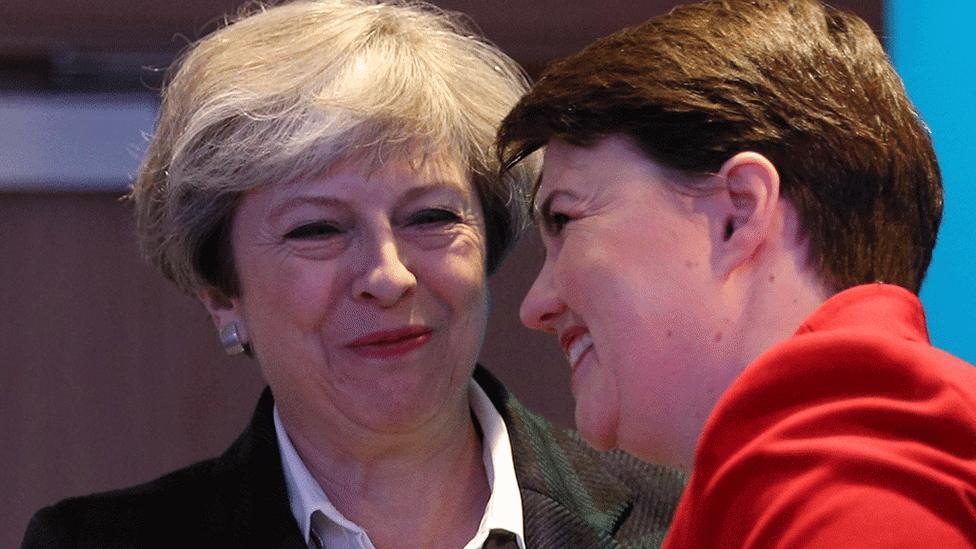Scottish Labour goes back to the future
- Published
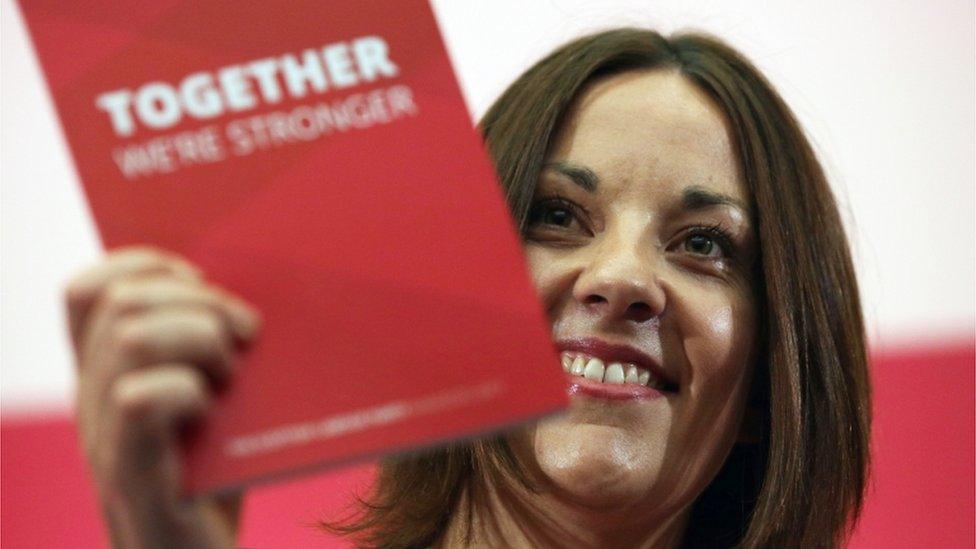
Kezia Dugdale launched the Scottish Labour manifesto at an event in Edinburgh
Tempora mutantur et nos mutamur in illis. Times change and we change with them. Such idle thoughts occurred to me as I scrutinised the Scottish Labour manifesto in Edinburgh, prior to the formal launch.
Not that there was much room for Latin in the document's 120 pages, not even for sub Ovid quotations.
No, my schoolboy Latin was mentally resurrected by the opening words in the section on penal policy. Without attribution, it read: "Labour is tough on crime and the causes of crime".
Recognise it? I think the original said "tough on…" twice. But it was of course a mantra of Tony Blair when he was heading for power in the 1990s - and eager to shed any negative connotations surrounding his party.
This is a different political era. Tempora mutantur, as Mr Blair undoubtedly absorbed at Fettes. But, still, the phrase on crime survived in the manifesto advanced by Jeremy Corbyn and promulgated today in its Scottish version by Kezia Dugdale.
Was this just a good line, revisited? Or perhaps a faint flashback to a period when Labour dominated UK and Scottish electoral politics?
Parties are not machines. They have folk memories, a collective consciousness. And there were other touches of nostalgia today. For example, images of John Smith and Donald Dewar in the pre-launch video.
But Kezia Dugdale was focused on the future. She said the single most significant policy in the manifesto was for a £10 per hour living wage. Making work pay, she said.
Additional taxation
She backed Labour plans for an increase in public spending which would, she told me, result in £3bn extra which the Scottish Parliament could deploy as it chose.
That would, needless to say, require additional taxation, as set out by Jeremy Corbyn. But, intriguingly, the tax plan set out by Ms Dugdale is not the Corbyn package. Instead, she reverts to Labour's own Scottish offer, including an increase in basic rate income tax. That would be for Holyrood, not Westminster, to deliver.
She deplored Conservative policies on pensions and benefits, even including the revised offer on social care for the elderly in England. They were, she said, "standing in this election on a miserable and mean manifesto that will take our country backwards."
Up with this, she added, Labour would not put. But what, inquired the wicked media (w.m.), are you going to do about it?
Ms Dugdale had turned to the w.m. after a few warm, supportive questions from party members. Pretty well every journalist asked whether Jeremy Corbyn was a vote-winner. Or variants thereon.
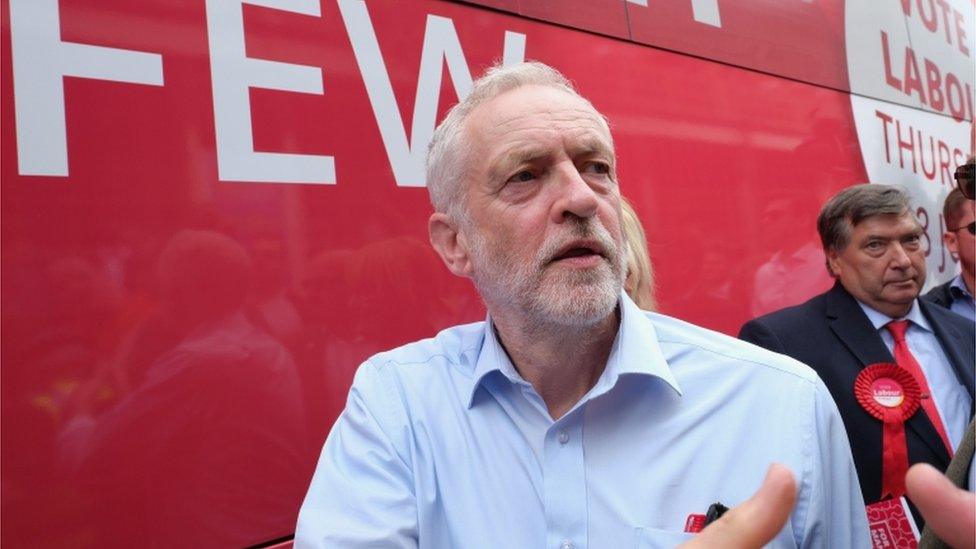
Jeremy Corbyn has refused to single out the IRA for condemnation over its bombing campaign
When the questioning turned to Mr Corbyn's views on the IRA, there were boos aimed at the w.m. from the warm, supportive party members.
Disparity between the media focus and that pursued by activists is by no means uncommon, by no means confined to Labour and healthy, in the wider scope.
The generality of media questions today, dealing with Labour's prospects, has other roots. For one, Ms Dugdale was herself critical of Mr Corbyn in the past. She says that is now over and Labour is completely united in contesting the Tories and the SNP.
For another, Ms Dugdale said in her opening remarks for the BBC Scotland debate that Labour was heading for UK defeat if the opinion polls were correct. In which scenario, she said that Scotland should seek to help present the Tories with an entrenched, Labour opposition.
In questioning Ms Dugdale today, I characterised this as a blend of pessimism and pragmatism. Perhaps wisely from her perspective, she declined to build upon her line from the debate, preferring instead to insist that Labour was out for every vote in every constituency.
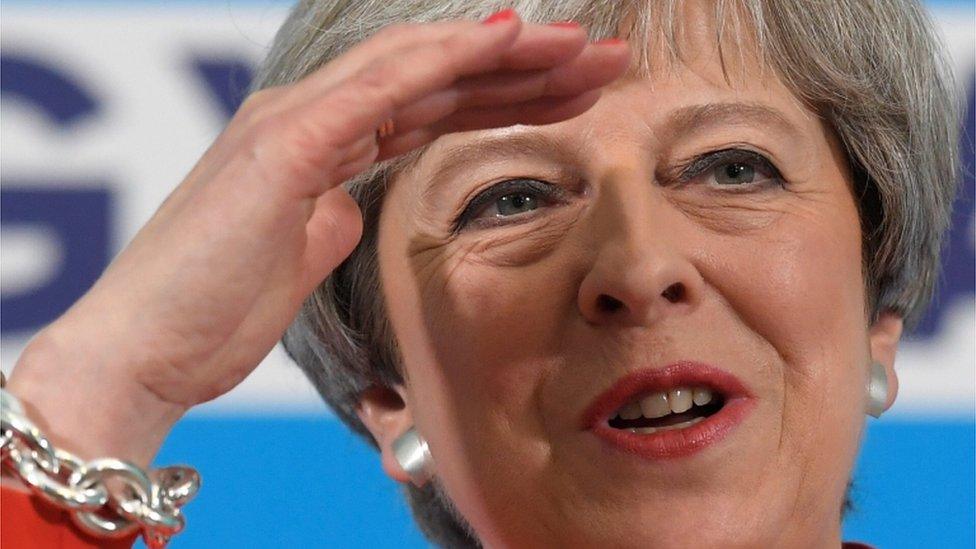
Theresa May has denied pulling a U-turn over her social care plans for England
In which regard, Labour has been buoyed to some extent by Theresa May's decision to qualify her offer on social care in England. She is now proposing an absolute cap on the amount pensioners would have to contribute.
But, of course, Labour starts from a low base, not least in Scotland where the party won just one Westminster seat last time out.
Part of Ms Dugdale's response is to urge voters in constituencies where Labour starts second to rally around her party in an effort to oust the SNP.
She was asked by the wicked media what she would advise voters in seats where another party, say the Tories, starts second. "They should vote Labour!", she declared with a trademark cheery grin. Tactics, it seems, have their limits.
And then there are the two big underlying issues of this election: Brexit and independence. On the first, Ms Dugdale said Labour would take a different approach to negotiations with the EU. But there was no going back. "The UK is leaving the European Union", she said.
On independence, rivals have claimed to detect slight signs of slippage in the past. Ms Dugdale was keen to nail this. There was a "cast-iron guarantee" that Labour would not support indyref2. Indeed, a line or two later, she said such a "divisive" initiative could "never" count upon Labour endorsement.
Her argument here was economic: she says that an independent Scotland would be £15bn short of the cash presently allocated to public spending. Such an analysis is, of course, disputed by the SNP.
But there was another element to this. The Labour Party, she said, was "built on solidarity and co-operation". It should thus repudiate Scottish independence. And thus we were back to party origins, back to collective consciousness.
- Published19 May 2017
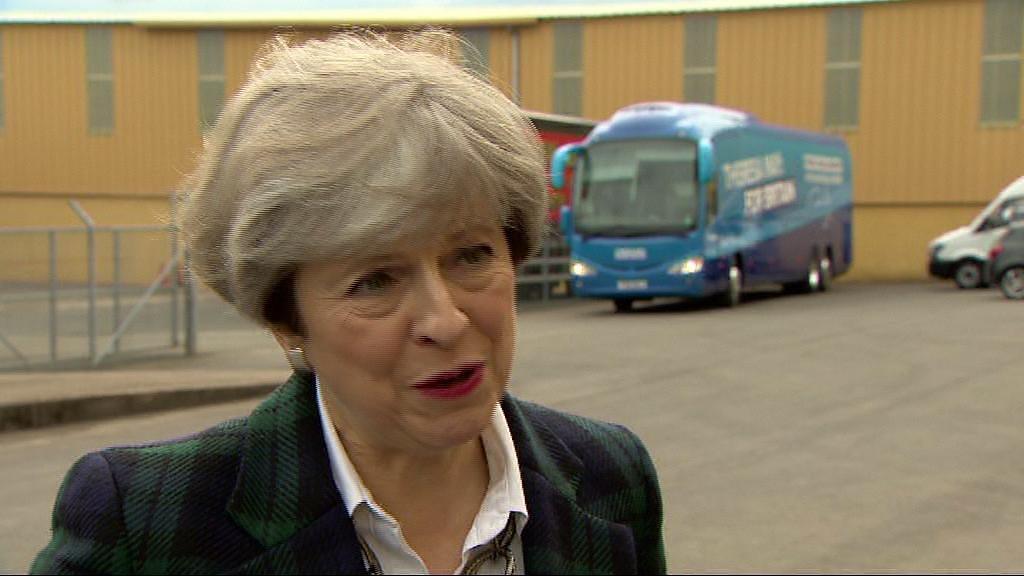
- Published19 May 2017
